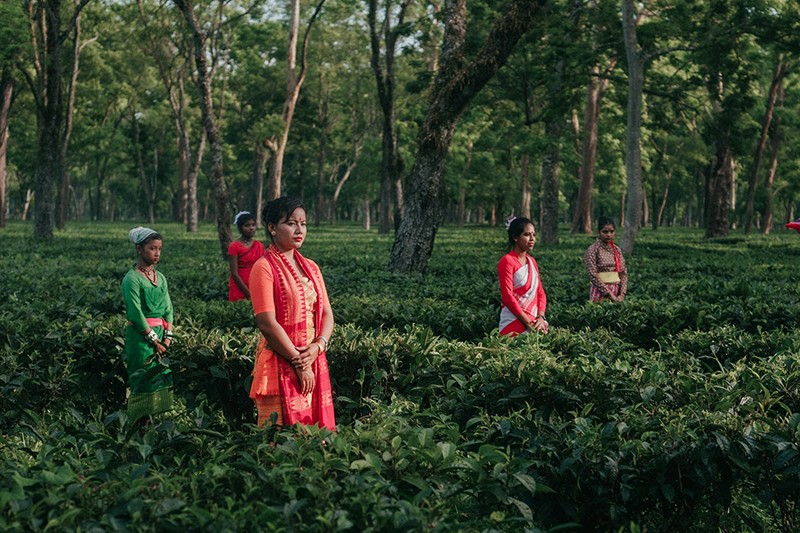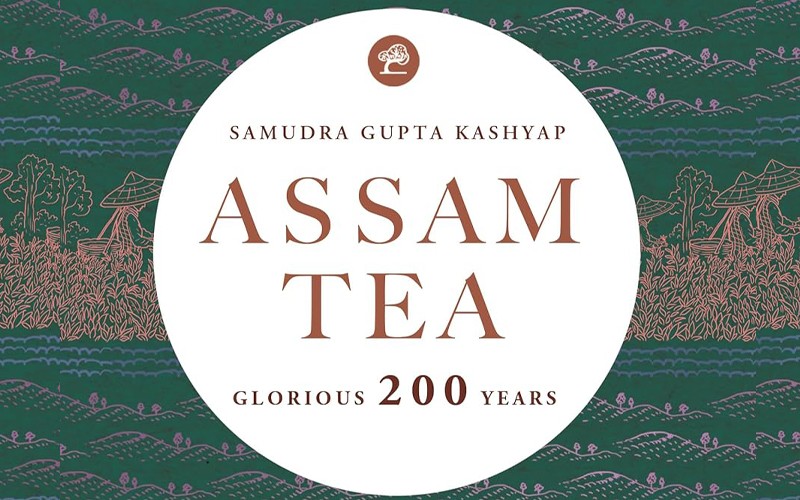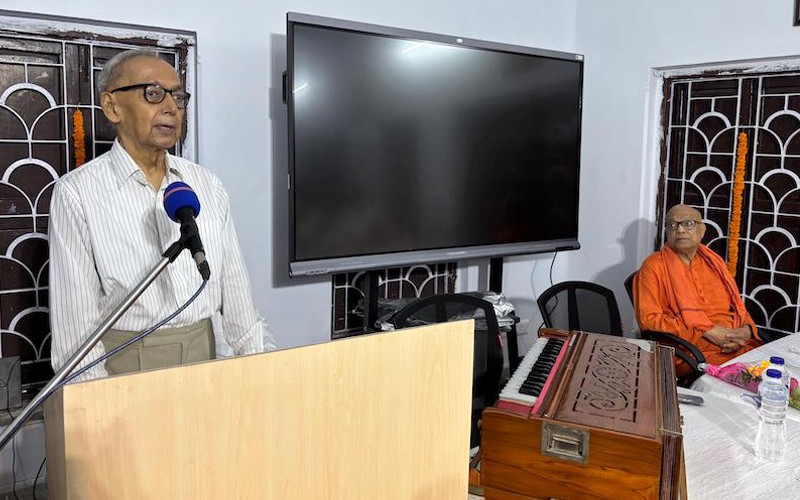Marking 200 years of Assam tea, book calls tea ‘a beverage of well-being’

Guwahati, May 20 : Even as the world celebrated the International Tea Day on May 21, a recently published book marking two hundred years of tea as an industry in Assam, has brought to the fore several scientific aspects and called it “a beverage of well-being.”
While the United Nations had designated May 21 as International Tea Day, the Tea Board of India has announced “Tea for Better Lives” as the theme for observing this day in the country.
Assam Chief Minister Himanta Biswa Sarma had said that celebrating 200 years of Assam Tea, marks Assam’s industrial legacy.
Referring to its history, Sarma recently at a function had said that tea was the first major industry in Assam, discovered in 1823.
The Assam government and many other organisations organised numerous events to mark the 200 years of Assam Tea.
Assam has over 10 lakh tea workers in the organised sector working in over 850 tea estates. Assam roughly produces 55 per cent of India’s tea.
“Tea is not just the most popular non-alcoholic beverage in the world, but is also often described as a beverage of well-being. The medicinal properties of tea have been acknowledged from time immemorial,” the book titled ‘Assam Tea: Glorious 200 Years’, authored by veteran Guwahati-based writer and scholar Dr Samudra Gupta Kashyap, said.
Dr Kashyap, in his well-researched book which describes the origin and growth of the tea industry in India, has cited reports published by four credible agencies to underline the medicinal and health values of tea, these being Tea Research Association, Tea Board of India, Indian Tea Association and the United Nations.
It was in the UN General assembly held on December 19, 2019, that a resolution was passed declaring May 21 every year as International Tea Day. "The UN resolution had also placed on record that drinking tea can bring many health benefits, from anti-inflammatory to anti-oxidant to weight-loss,” the book has noted.
Quoting from the Tea Research Association website, the author has pointed out that it clearly mentions “a large body of scientific evidence” which indicates the benefits of tea drinking for its wide range of medicinal properties.
“Based on such scientific evidence, it also says that tea, among other things, prevents coronary heart disease, hypertension, blood sugar and tooth decay. Moreover, tea has also been reported to have anti-viral and germicidal properties,” it said.
“The most important medicinal value of tea is that it is anti-carcinogenic and anti-mutagenic. The anti-carcinogenic activity contributed by the antioxidant polyphenols in tea has been shown to be very low in concentration even in consumer dosages.
In view of this, it has been pointed out that tea offers tremendous scope of emerging as a practical chemi-preventive included in a healthy diet for protection of the consumers by lowering risk of different types of cancer,” the book quoting Tea Research Association reports, said.
Black tea, which is more widely consumed worldwide, in particular, has several attributes which contribute towards the overall well-being of people who drink it on a regular basis.
“The Tea Board of India on the other hand has referred to numerous scientific evidence showing how black tea can make a significant contribution to a healthy lifestyle, and in particular, in areas of chronic diseases including cardio-vascular health and dental hygiene,” the book, published by Publication Board, Assam, said.
 ‘Assam Tea: Glorious 200 Years’ is authored by veteran Guwahati-based writer and scholar Dr Samudra Gupta Kashyap.
‘Assam Tea: Glorious 200 Years’ is authored by veteran Guwahati-based writer and scholar Dr Samudra Gupta Kashyap.
Dr Kashyap in fact has provided a list of as many as eight benefits of drinking black tea by quoting the Tea Board of India.
These include – (a) Rich in antioxidants, black tea can help prevent several chronic diseases including cancer; (b) Methylxanthines present in black tea keeps on energized; (c) Polyphenols present in black tea helps protect the cells and DNA in the human body against damage; (d) Antioxidants present in black tea can lower risks of heart ailments and clogging of arteries; (e) When regularly consumed, black tea is beneficial to people suffering from diabetes and high blood cholesterol; (f) Amino acids present in black tea helps enhance mental concentration; (g) Phytochemicals present in black tea helps prevent osteoporosis: and (h) Alkylamine, an antigen present in black tea, provides natural resistance to microbial infections, thereby strengthening immunity.
Dr Kashyap’s book has also mentioned that there are about 1000 scientific publications which have documented the cancer-preventive ability of tea.
“It was in 1988 that a study for the first time documented the cancer-preventive effect of tea. Since then, studies corroborated by several laboratories across the globe have also suggested that catechins and theaflavins found in tea may help reduce the risk of various types of cancers in humans,” Kashyap said.
That green tea too has numerous health benefits has been also clearly mentioned in the book.
Quoting reports of the Indian Tea Association, Kashyap has said that many laboratories around the world have provided convincing evidence that consumption of green tea can reduce cancer incidence particularly of the skin, lungs, prostate, breast, stomach and esophagus.
“Epidemiological observations on the other hand have suggested that green tea consumption is associated with lowering cancer rates of prostate, esophagus, breast and lung,” he has said.
The book, which has already received wide acclaim, has also brought to the fore cognitive benefits arising out of tea consumption, especially like mental clarity and concentration.
“Attention and alertness among tea consumers have also been medically proven to be better in comparison to that of consumers of other plant-based beverages,” it said.
A veteran journalist, Dr Kashyap has so far written over twenty books related to various aspects of history, economy, and demography of the northeast region of India.





